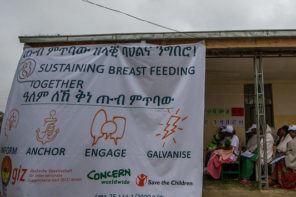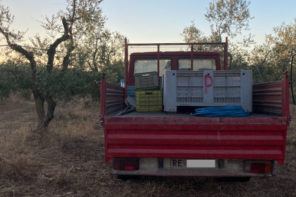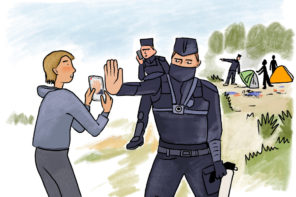Question 1: The rhetoric surrounding smugglers is packed with graphic images of violence and exploitation. What does your research indicate? Are smugglers really parasites profiting on human desperation, or, at the end of the day, do they provide a service to those on the move? How do we move the conversation forward?
It is hard to generalise on what kind of persons smugglers are. During my research along the migration corridor which links Eritrea and Europe between 2012 and 2014 — the Eritrean refugees I interviewed sometimes told stories of cruel smugglers who locked them up for long time in crowded stores with limited food and water while waiting for them to pay the journey’s price. Other times refugees told me about honest and respectable smugglers who managed to facilitate their safe border-crossing. These contradictory accounts may not only be the result of contingencies and different smugglers’ personalities. They also may be due to the many different actors involved in facilitating irregular migration from Eritrea. For example there are guides accompanying fugitives from Eritrean border areas to neighbouring countries; drivers who transport refugees from camps to cities and through the desert to Libya; middlemen, who organise the journeys and put migrants in contact with different service providers; other agents who provide the space to keep migrants during the journey. These actors have different expertises and relationships with the smuggled migrants. For example, while the success of a middleman is based on his reputation, enforcers in Libya are meant to collect payment and this may entail violence and coercion. In order to draw a more realistic image of smugglers, it is thus important to avoid generalisation and to work on building a fine-grain understanding of the many different roles and the internal organisation of smuggling.
Question 2: Media, academic and policy circles suggest that human smuggling is a gateway into human trafficking. Many times both terms are used interchangeably. Does your work provide any insight into these phenomena and what does that say about Migration?
There have been reports of smugglers selling their clients to traffickers such as Rashaida bandits operating across Sudan and Egypt. Some of the people with whom I spoke during my fieldwork in Sudan referred to these smugglers as “the killers”. However, my research suggests that smuggling is an inherently different phenomenon from trafficking, because the first one flourishes only if clients’ wellbeing is granted, while the latter is defined by ongoing exploitation.
In my specific case study, traffickers were known to be torturing Eritreans to solicit high ransoms from relatives living in the diaspora. In contrast, smugglers built their businesses by guaranteeing the safety of their clients during the journey. For this reason, the smugglers I interviewed always stressed the fact that they took responsibility for their customers. This acceptance of responsibility was not only due to a brotherly feeling towards the migrants – usually smugglers were migrants themselves – but also to the understanding that their success depended upon the reputation they built among their customers.
Question 3: Another myth connected to smuggling is the one pertaining to its organisation. We hear of smugglers organised into cartels, networks or transnational groups, but also of small-scale operations. What does your work suggest, and what does that say about irregular migration?
The facilitators I encountered in my research in Ethiopia and Sudan were usually working as private entrepreneurs in collaboration with guides, drivers, and other middlemen to provide a service. I gathered no evidence that they belong to transnational hierarchical organisations, but rather that they operated as loose business networks that were based on convenience and that could easily be interrupted. Certainly, some actors had more power than others in these networks, mainly depending on the amount and the quality of their contacts. Their superior connections allowed them to provide in-demand services, such as safer journeys and fake passports, and to negotiate their profit with other professionals of irregular migration, such as drivers and guides. These smaller actors have crucial expertise but are not in a position to organise several steps of a journey. In more general terms, irregular migration in the Horn of Africa is still an open market with low barriers to entry, in which many small-scale organisations compete relatively freely. However, this does not mean that a monopoly could not be built in this sector in the future.
See more responses here:
[circles_gallery ids=”18661,18660,18844,18770,18658,18657,18717,18662,18673,18669″]









